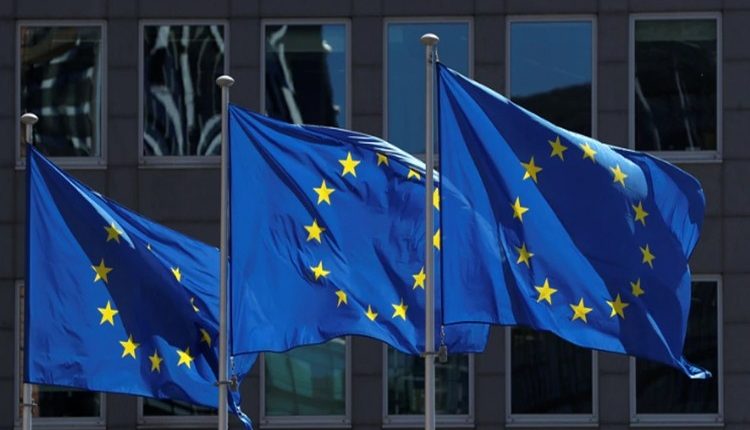The European Union and Nepal held the 14th meeting of the Joint Commission on 1 February 2023 in Brussels. They exchanged views on a broad range of issues, a sign of deepening ties and expanding EU-Nepal agenda.
The EU expressed its condolences to Nepal with regard to the tragic airplane crash near Pokhara on 15 January.
The EU and Nepal reiterated their support for a rules-based international order with the UN at its core, as well as their commitment to safeguard the principles of the UN Charter.
In the first Joint Commission meeting under the new leadership in Nepal, following the federal and provincial elections on 20 November 2022, both partners expressed determination to continue working on strengthening bilateral ties further. They also underlined the importance of further strengthening the representation of women and disadvantaged groups. The EU welcomed Nepal’s commitment, as expressed in the Government’s Policy Priorities and Minimum Programme of 9 January, 2023, to prioritise the tabling in the Parliament of those key draft pieces of legislation that would promote further the implementation of the Constitution and the completion of the remaining tasks of the peace process, namely transitional justice. The two sides also discussed the need to continue the efforts of controlling corruption and promote good governance.
Human rights, in particular the situation of women, children and disadvantaged communities, were discussed at the meeting. The EU and Nepal confirmed their intention to constructively engage in the Human Rights Council on the matters of common interest, and the EU invited Nepal to give positive consideration to the pending requests for visits of UN Special Rapporteurs.
The EU praised Nepal’s response to the COVID-19 pandemic, including its vaccination campaign and economic stimulus. Nepal appreciated the swift cooperation of medicines, medical equipment and vaccines from the EU Member States during the difficult time of COVID-19 pandemic.
The EU and Nepal discussed bilateral trade relations in light of Nepal’s future graduation from Least Developed Country (LDC) status in 2026. Nepal seeks to diversify its exports to the EU, to make full use of the benefits offered by the “Everything But Arms” trading regime, while preparing to apply for the EU Generalised Scheme of Preferences Plus (GSP+) arrangement. The EU offered close cooperation during the transition period following Nepal’s graduation from Least Developed Country status, and asked Nepal to share its graduation strategy, also stressing the importance of an open and competitive business environment.
The EU and Nepal highlighted strong investment potential, notably in the area of renewable energies. The EU encouraged Nepal to take advantage of investment opportunities, including from the European Investment Bank and other European financial institutions, which can be supported by guarantees and grants through the new European Fund for Sustainable Development Plus (EFSD+). Such investments are expected to support shared priority objectives in areas such as green and sustainable economic development and poverty reduction.
The EU and Nepal reaffirmed that air safety was among the key priority areas of their bilateral relations. They both agreed that the EU on-site assessment planned for mid-February would be postponed to a later date, to allow the Civil Aviation Authority of Nepal (CAAN) to deal with the aftermath of the recent airline crash.
In the field of people-to-people contacts, they welcomed the outstanding participation of Nepali Erasmus Mundus scholarship-winners in 2022. Five new capacity-building projects with Nepali universities were also selected in 2022 focusing on new programmes on e-health, disaster resilience and cybersecurity. The two sides stressed further enhancing cultural diplomacy ties, including through the exchange of artists.
On global climate and environmental governance, the EU praised Nepal’s commitment to reach full net zero emissions by 2045, and encouraged maintaining this trajectory. They both highlighted the importance of transparency and accountability of climate finance commitments, and the need to ensure that green transition is sustainable and socially inclusive. They welcomed the ambitious outcome at the COP15 of the Convention on Biological Diversity and reiterated their resolve to urgently implement actions to restore, protect and sustainably use biodiversity in alignment with the new framework.
The EU and Nepal discussed regional processes and existing platforms to foster economic integration. The EU highlighted the Global Gateway as an instrument to strengthen regional inter-connectedness, notably in energy and digital areas.
The meeting was co-chaired by Paola Pampaloni, Deputy Managing Director for Asia and the Pacific of the European External Affairs Service, and Bharat Raj Paudyal, Foreign Secretary of the Government of Nepal. The working lunch on foreign policy was co-chaired on the EU side by Enrique Mora, Deputy Secretary General/Political Director of the European External Action Service.
The next Joint Commission meeting will take place in Kathmandu in 2024.


Comments are closed.